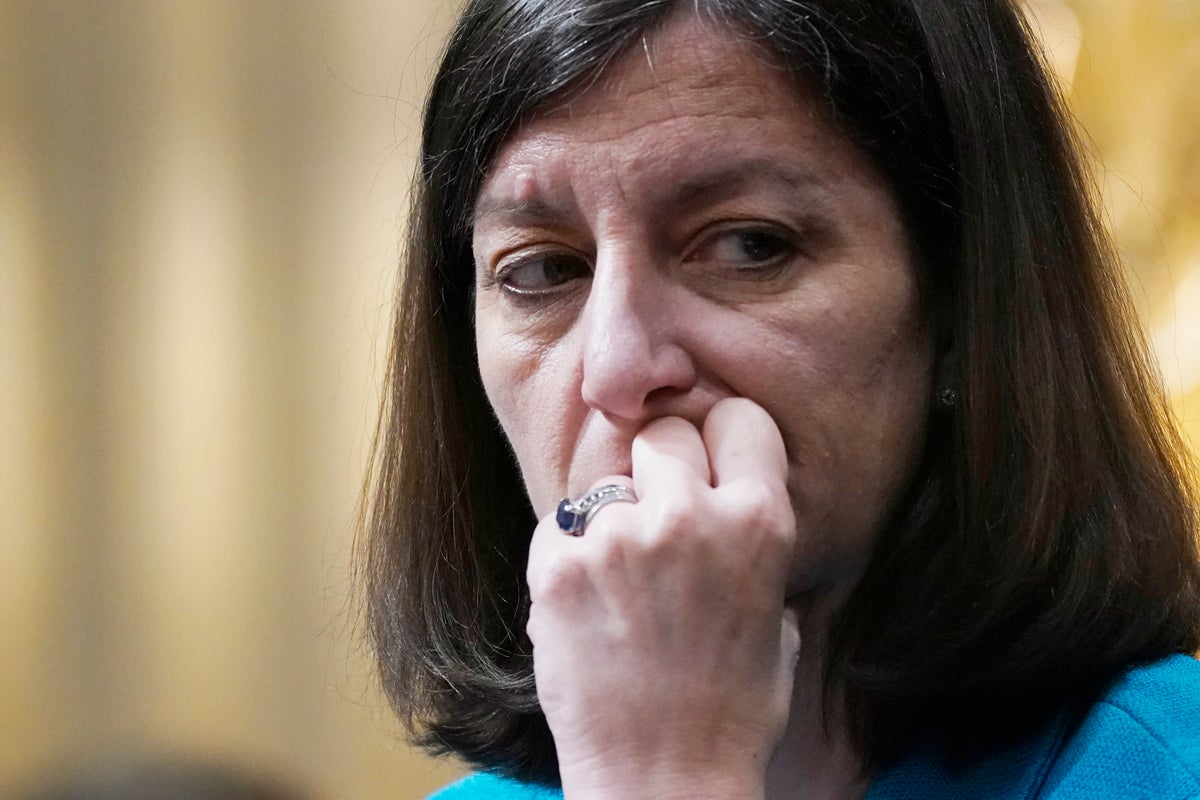
Reps. Elaine Luria and Adam Kinzinger, who will lead questioning in the closing summer hearing of the Jan. 6 committee on Thursday night, are from different parties but agree emphatically on one thing: The investigation into the deadly insurrection at the U.S. Capitol is worth sacrificing their political careers.
Luria, a Democrat first elected in 2018, is facing a difficult reelection in a Virginia swing district that was redrawn to be more Republican. Kinzinger, a Republican who's a pariah to some in his party because of his condemnation of former President Donald Trump, decided not to seek another term in his Illinois district.
The two also are military veterans and have invoked their service oaths as part of their reason for pressing the inquiry. Luria is a Naval Academy graduate who served 20 years, including as a nuclear-trained surface warfare officer who commanded 400 crewmembers in the Persian Gulf. Kinzinger flew combat missions in Afghanistan and Iraq and remains a lieutenant colonel in the Air National Guard.
“You’re going to see the fulfillment of the meaning of the sacred oath that all of us take that have served in government, to preserve and protect the Constitution and the United States,” said Norm Eisen, who served as special counsel to the House Judiciary Committee from 2019 to 2020, during Trump’s first impeachment trial.
“But it’s one that — particularly those who serve in the military, like the two of them, and put their lives on the line — take to heart," Eisen said.
The most prominent and imperiled committee member is Rep. Liz Cheney, R-Wyo., the vice chair, who has been unsparing in her criticism of Trump. She was removed by her own party as the No. 3 House Republican and now faces a potentially uphill primary battle for reelection in her deeply red home state.
Cheney's immediate political fortune, as well as that of Kinzinger and Luria, may provide the most direct answers to larger questions about whether the hearings into the mob attack on Jan. 6, 2021, will chip away at Trump's continued hold of the national Republican Party. They could also offer clues about whether efforts to fully make public the former president's responsibility in helping spark the mob attack can be a boon to front-line Democrats during November midterm elections that could otherwise be brutal for their party.
“Mr. Kinzinger and I, who are both veterans leading this committee, I think, as veterans of the military, understand what action looks like in a time of crisis,” Luria told CNN last weekend. She added of Trump’s actions: “I look at it as a dereliction of duty. He didn’t act. He had a duty to act.”
The hearing on Thursday will focus on Trump’s actions as rioters overran the Capitol. Witnesses will describe what occurred during the 187 minutes between when the then-president addressed supporters who had gathered in Washington by imploring, “We fight like hell. And if you don’t fight like hell, you’re not going to have a country anymore,” and his releasing a video in which he praised the rioters as “very special” while also asking them to disperse.
Luria has said repeatedly that the committee’s work defending American democracy is more important than her prospects for reelection in a district that includes Naval Station Norfolk, the world’s largest naval base. During an interview last summer, shortly after she was appointed to the committee, Luria also argued that her serving on it bolstered her credibility as a pragmatic moderate in a centrist district.
“I think it’s incredibly important for the American people to understand what happened, why it happened and what we can do to prevent something like that from happening in the future,” Luria said then. While campaigning around her district, she has referred to the insurrection as a dry run, saying such an attack might happen again unless the root causes of the first one are fully exposed — and that voters have expressed gratitude about that effort.
Republican Virginia state Sen. Jen Kiggans, who is trying to unseat Luria in November, said the election won't be decided by the Jan. 6 committee.
“I have never had a single voter, or person (whose) door I’ve knocked on, or civic league I’ve visited or event I’ve attended, I’ve never had a single person come up to me and say that this is the main issue they’re focused on,” Kiggans said. “On a daily basis, I hear over and over and over again about gas prices and grocery prices and grocery shortages and how much everything is costing them from their home repair projects to their kids’ school supplies to going out to eat at a restaurant.”
Kinzinger has represented his Illinois district since 2013. He voted to impeach Trump and announced last fall that he wasn’t seeking another term in Congress after the Democrat-controlled Illinois Legislature approved new congressional maps that would have forced Kinzinger and another Republican incumbent who has more reliably defended Trump, Rep. Darin LaHood, into a primary matchup.
Still, Kinzinger hasn't ruled out seeking elective office in the future.
“When you fight for your nation and you fight for people, it makes you believe in something bigger,” Kinzinger said in an interview last summer.
Eisen, a former Obama administration ambassador to the Czech Republic and senior governance studies fellow at the Brookings Institution, said that the political stakes are real for Luria and Kinzinger, adding that “losing an election is never pleasant” but “they all understand that might be a consequence.”
"In some ways, their willingness to take that risk actually enhances the power of the example that they set,” Eisen said. “History’s going to be kind to them. I don’t think any of them will have regrets.”







